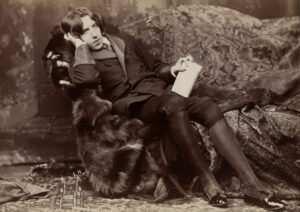Henry Clay: The Essential American, by David S. Heidler and Jeanne T. Heidler, Random House
Dubbed the Great Compromiser by his antebellum contemporaries, Henry Clay is arguably the most powerful House Speaker ever and may well be the most significant American politician who never won the White House. But only now is he the subject of a book to match his stature. In The Essential American, a veteran husband-and-wife team of historians delivers a complex portrait of a man who loomed larger than most of the 10 presidents who came and went during his 46 years in the House and Senate.
Clay’s legend begins with two superlatives, one welcome and the other not. His “melodious baritone” made him, along with Daniel Webster—a towering figure in the Senate—one of America’s most accomplished public speakers, capable of holding audiences rapt for hours, even days. He was also one of America’s all-time political losers, failing to capture the presidency in 1824, 1832 and 1844.
After leaping to national prominence as an 1812 War Hawk, Clay seemed destined for the presidency. As House Speaker, he pushed through numberless deals, including the 1820 Missouri Compromise, which helped maintain the Union, at least temporarily, despite growing sectional differences. And he developed an ambitious vision for the future he called the American System, a Federalist-inspired platform of tariffs, infrastructure development and centralized banking that reflected his belief that rising national prosperity could bridge ever-widening regional fissures.
This, then, is the puzzle: Clay was supremely talented yet perpetually out of step with the country. For the Heidlers, he was by turns astonishingly naive and politically tone deaf. His greatest flub followed the deadlocked 1824 presidential election. In the special House of Representatives vote, he helped John Quincy Adams defeat Andrew Jackson, then accepted Adams’ offer to become secretary of state. The ruthless Jackson political machine went into overdrive, casting this as the “Corrupt Bargain.” The charge dogged Clay for the rest of his life.
It didn’t help that Clay’s American System began alienating voters outside the rapidly developing Northeast. As important, it placed Clay in direct conflict with both Jackson (over the Bank of the United States, which Clay saw as his system’s linchpin and Old Hickory viewed as a competing power) and John C. Calhoun (who nearly led South Carolina into secession over Clay’s attempt to raise import duties in 1832). These were the types of fights Clay relished and excelled at—close legislative combat that responded to speechmaking and brokering, as much about personalities as ideology. He became Congress’ leading deal maker.
But as America hurtled toward civil war, Clay’s political views came to seem anachronistic. In the 1844 presidential election, when territorial expansion was the nation’s foremost issue, Clay’s Whig platform took no position on annexing Texas. Defeated by pro-annexation Jackson Democrat James K. Polk, Clay appeared buffeted by currents he never really understood. Nowhere was his blinkered view of American life more evident than in his failure from the outset to grasp the deep and irreconcilable passions dividing North and South on slavery. That was clear with the 1820 Missouri Compromise, a stopgap solution he had little to do with framing, but which ironically got him nicknamed the Great Compromiser.
Nevertheless, the authors’ shrewd, detailed rendering of Clay and his times also demonstrates clearly why young Abe Lincoln so fervently esteemed him.




